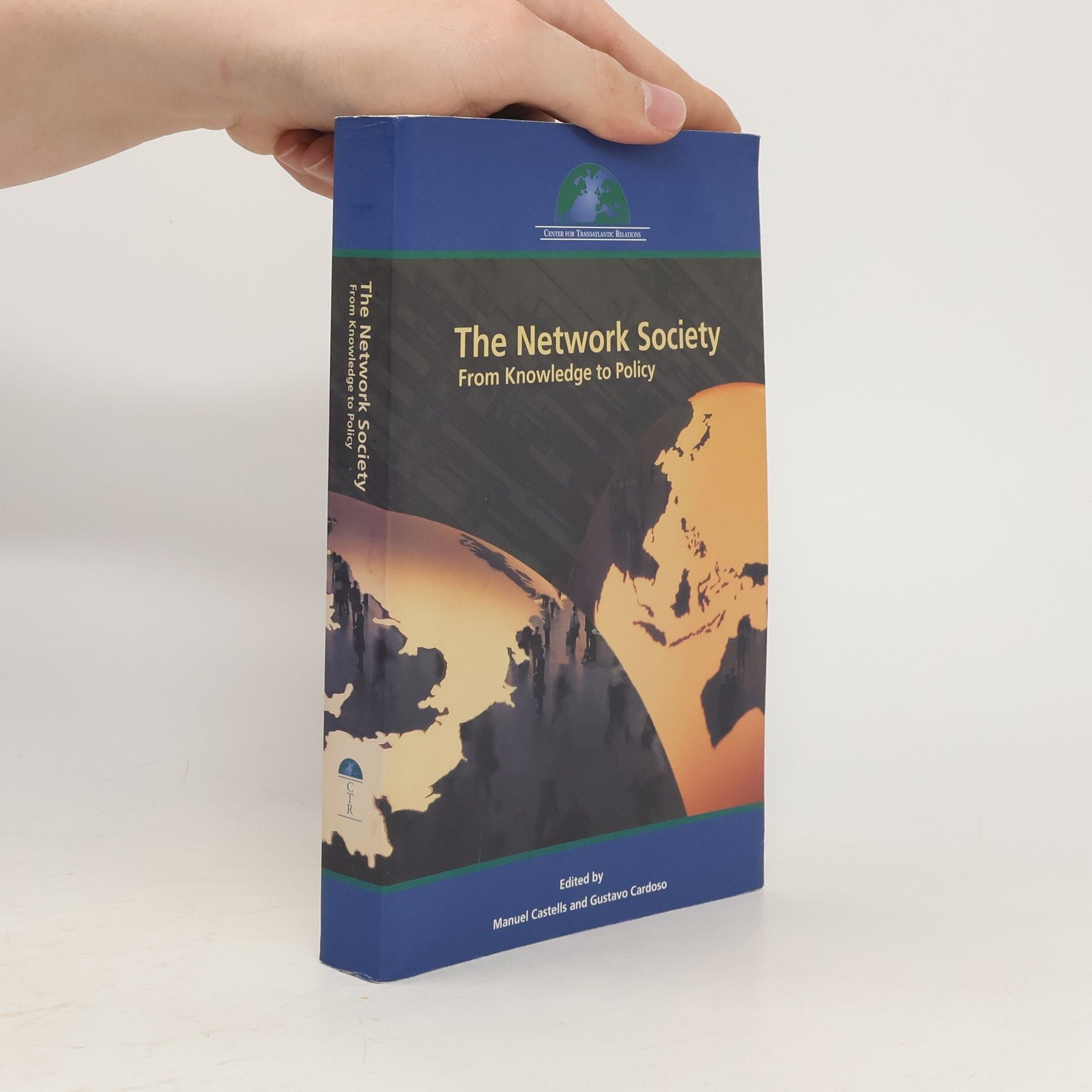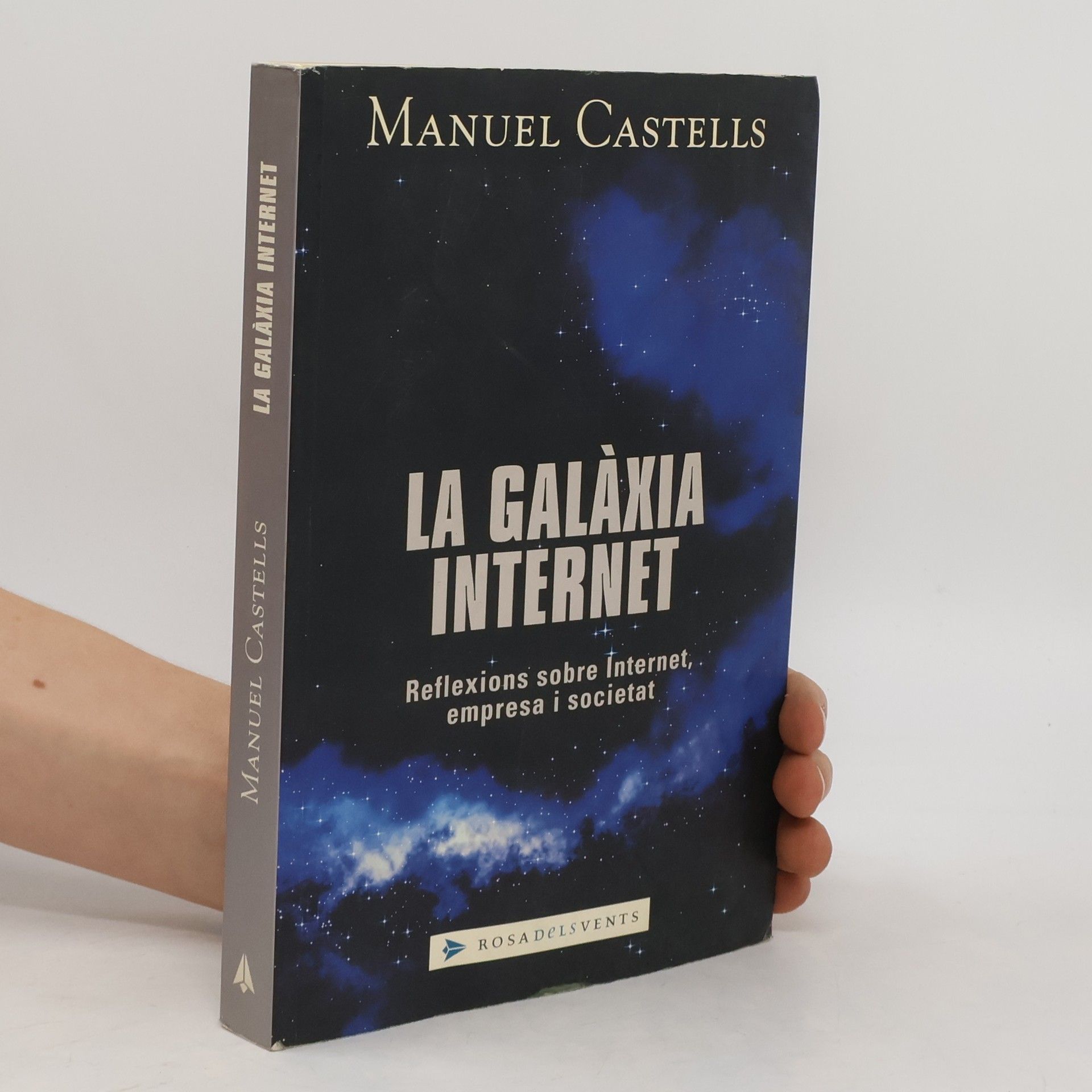Manuel Castells gilt als Pionier in der Analyse des Informationszeitalters und der Netzwerkgesellschaft. Er beleuchtet die Wechselwirkungen zwischen digitalen Entwicklungen und sozialen Veränderungen und zeigt auf, wie die digitale Revolution die gesellschaftlichen Strukturen und Interaktionen transformiert. Seine Erkenntnisse bieten einen tiefen Einblick in die Dynamik der modernen Welt und die Herausforderungen, die mit der fortschreitenden Vernetzung einhergehen.
Manuel Castells Book order (chronological)
Manuel Castells is a leading thinker on communication technology and society. His work deeply explores how the digital age is reshaping our economy, society, and culture. Castells analyzes the dynamics of the information age, focusing on the network society and its impacts. His influential studies offer crucial insights into contemporary global transformations.






Der Aufstieg der Netzwerkgesellschaft
Teil 1 der Trilogie Das Informationszeitalter
Der Band, den Sie in Händen halten, ist eine erheblich veränderte Fassung die ses Buches, das ursprünglich im November 1996 erschienen ist. Die gegenwär tige Version wurde im zweiten Halbjahr 1999 ausgearbeitet und geschrieben. Sie setzt sich zum Ziel, die technologischen, wirtschaftlichen und gesellschaftli chen Entwicklungen einzubauen, die während der späten 1990er Jahre einge treten sind und insgesamt die Diagnose und Prognosen bestätigt haben, die ich in der ersten Ausgabe vorgelegt habe. Ich habe die zentralen, substanziellen Elemente der Gesamtanalyse nicht verändert: hauptsächlich, weil ich glaube, dass der Kern meiner Argumentation nach wie vor zutreffend ist, aber auch, weil alle Bücher Kinder ihrer Zeit sind und am Ende von der Entwicklung und von der Berichtigung der in ihnen enthaltenen Ideen überholt werden müssen, wenn die gesellschaftliche Erfahrung und die Forschung neue Informationen und neues Wissen hervorbringen. Außer der Aktualisierung eines Teils der In formationen habe ich ein paar Fehler korrigiert und versucht, die Argumentati on wo immer möglich klarer und überzeugender zu machen. Dabei waren mir viele Bemerkungen, Kritiken und Beiträge aus der ganzen Welt nützlich, die allgemein in konstruktiver und kooperativer Weise vorge bracht wurden. Ich kann dem Reichtum der Debatte, die dieses Buch zu meiner großen Überraschung ausgelöst hat, nicht gerecht werden.
Mobile Communication and Society
- 352 pages
- 13 hours of reading
How wireless technology is redefining the relationship of communication, technology, and society around the world-in everyday work and life, in youth culture, in politics, and in the developing world.
In this wide-ranging and powerful book, Castells analyses the revolution in communication technologies and social media that has created a new communication system, mass self-communication. He argues that this has, in turn, transformed power relationships, the role of social movements, and their responses to recent political and economic crises.
Este libro habla de mujeres y hombres y de sus relaciones, de cada uno de nosotros, porque esas relaciones, en cualquiera de sus modalidades afectivas, es lo que determina lo esencial de nuestra vivencia. Aporta datos y análisis que nos ayudan a entender los procesos que subyacen a nuestros dramas personales, que nos permiten saber de dónde venimos y dónde estamos. Los autores son destacados académicos y todo lo que dicen está fundamentado en los datos disponibles, pero éste no es un libro académico. Cada autor ha escrito de forma independiente los dos textos analíticos y documentales sobre la condición femenina y la condición masculina con que comienza el libro. A continuación, establecen un diálogo en el que conversan libremente, siguiendo un ligero hilo temático, sobre las relaciones actuales entre hombres y mujeres, y se transcribe el texto de su reflexión sin modificaciones, haciendo al lector cómplice de la conversación.
This volume explores the patterns and dynamics of the network society in its policy dimension, ranging from the knowledge economic, based in technology and innovation, to the organizational reform and modernization in the public sector, focusing also the media and communication policies. The Network Society is our society, a society made of individuals, businesses and state operating from the local, national and into the international arena.
Das Informationszeitalter 1/3. Studienausgabe
Band 1: Der Aufstieg der Netzwerkgesellschaft / Band 2: Die Macht der Identität / Band 3: Jahrtausendwende. Wirtschaft - Gesellschaft - Kultur
- 600 pages
- 21 hours of reading
Die Entwicklung von der Industriegesellschaft zur Informationsgesellschaft wird in diesem dreibändigen Werk von Manuell Castells umfassend dargestellt. Anhand von reichhaltigem empirischem Material analysiert und interpretiert der Autor die tiefgreifenden Veränderungen, die das Informationszeitalter prägen. Castells bietet eine tiefgehende Einsicht in die sozialen, wirtschaftlichen und kulturellen Aspekte dieser Transformation und beleuchtet die Auswirkungen auf unsere moderne Welt.
Das Informationszeitalter - 3: Jahrtausendwende
Teil 3 der Trilogie Das Informationszeitalter
- 466 pages
- 17 hours of reading
Dieser Band beschliesst zwolf Forschungsjahre, in denen ich daran gearbeitet habe, eine empirisch fundierte, kulturubergreifende soziologische Theorie des Informationszeitalters vorzulegen. Am Ende dieser Reise, die mein Leben deut lich gezeichnet, in gewissem Sinne gar ausgelaugt hat, mochte ich einigen Leu ten und Institutionen gegenuber, deren Beitrag zur Vollendung dieses dreiban digen Buches entscheidend war, meine Dankbarkeit ausdrucken. Meine tiefster Dank gilt meiner Frau Emma Kiselyova, deren Liebe und Unterstutzung mich mit Leben und der Energie erfullt hat, die ich brauchte, um das Buch zu schreiben; ihre ergiebige Forschungsarbeit war fur einige Kapitel insbesondere fur Kapitel 1 wesentlich. Dieses Kapitel uber den Zusammen bruch der Sowjetunion wurde von uns beiden recherchiert, sowohl in Russland wie auch in Kalifornien. Ich hatte es nicht geschrieben, ohne ihr personliches Wissen vom Leben in der Sowjetunion, ohne ihre Analyse russischsprachiger Quellen und ihre Berichtigung der vielen Fehler, die ich in den diversen Ent wurfen immer wieder gemacht habe. Ausserdem ist sie die wichtigste Recher cheurin der Grundlagen fur das Kapitel 3 uber die globale kriminelle Okono nue."




